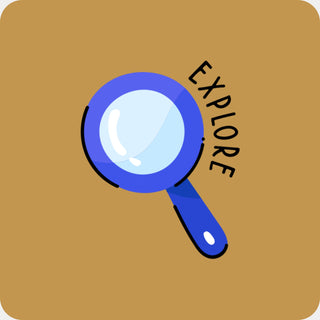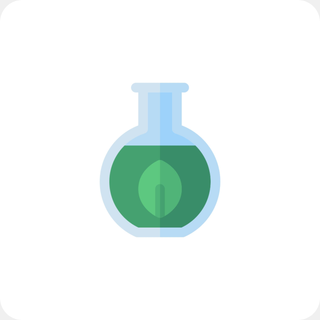Introduction
Career counseling is a dynamic field that requires a deep understanding of individual preferences, strengths, and goals. To provide tailored guidance and support, career counselors often rely on assessment tools, particularly psychometric assessments. These tools play a crucial role in helping career counselors gain insights into their clients' personalities, aptitudes, and interests. In this comprehensive guide, we will explore the importance of psychometric assessment tools in career counseling, delve into various types of assessments, and provide valuable insights for career counselors on how to choose the right ones to best serve their clients' needs.
The Significance of Psychometric Assessment Tools in Career Counseling
Psychometric assessment tools are designed to measure psychological attributes, such as personality traits, cognitive abilities, and interests. They provide a systematic and standardized way to gather information about clients, helping career counselors make informed decisions and recommendations. Here's why psychometric assessment tools are so crucial in career counseling:
-
Objective Insights: Assessments offer objective data that counselors can use to better understand their clients' strengths, preferences, and areas of development.
-
Personalization: By tailoring guidance based on assessment results, counselors can provide clients with personalized recommendations that align with their unique profiles.
-
Clarity: Assessments can clarify career-related uncertainties and help clients gain a clearer sense of direction and purpose.
-
Validation: Clients often find validation and confidence in assessment results that confirm their suitability for particular career paths.
-
Enhanced Communication: The data provided by assessments can facilitate more productive and focused conversations between counselors and clients.
Types of Psychometric Assessment Tools in Career Counseling
Career counselors have access to a wide range of psychometric assessments, each designed to measure specific aspects of an individual's personality, abilities, or interests. Here are some common types of assessment tools used in career counseling:
-
Personality Assessments: These assessments explore an individual's personality traits, such as introversion-extroversion, openness, conscientiousness, and emotional stability. The Myers-Briggs Type Indicator (MBTI) is a well-known example.
-
Interest Inventories: Interest inventories help clients identify their interests and preferences in various career-related areas. The Strong Interest Inventory is a widely used tool in this category.
-
Aptitude Tests: Aptitude tests assess an individual's natural abilities and potential for specific skills or tasks. These assessments can help clients understand their strengths and limitations in areas such as math, verbal reasoning, or spatial ability.
-
Values Assessments: Values assessments explore an individual's core values and beliefs, helping clients align their career choices with their deeply held principles.
-
Skills and Competencies Assessments: These assessments evaluate a client's existing skills, competencies, and proficiencies, helping determine their suitability for particular professions or industries.
-
Career Readiness Assessments: Career readiness assessments assess an individual's readiness for the job market, including their job-seeking skills, resume-building abilities, and interview skills.
Choosing the Right Assessment Tools
Selecting the most appropriate assessment tools for your clients is a critical decision in career counseling. Here are some considerations to help you make informed choices:
-
Client's Needs and Goals: Consider the specific needs and goals of each client. Are they seeking clarity on their career path, exploring new options, or preparing for a career change? Tailor your assessments to address their unique situations.
-
Validity and Reliability: Ensure that the assessment tools you choose have been rigorously tested for validity and reliability. Valid assessments accurately measure what they claim to measure, while reliable assessments yield consistent results over time.
-
Age and Cultural Sensitivity: Take into account the age and cultural background of your clients. Some assessments may be better suited to certain age groups or cultural contexts.
-
Ethical Considerations: Adhere to ethical guidelines when using assessment tools. Obtain informed consent from clients, explain the purpose of the assessments, and ensure confidentiality of results.
-
Feedback and Interpretation: Consider how you will provide feedback and interpretation of assessment results to clients. Effective communication is essential to help clients understand and apply the insights gained from assessments.
-
Assessment Length: Assessments can vary in length from short questionnaires to more extensive tests. Choose assessments that align with your clients' preferences and available time.
-
Cost and Resources: Evaluate the cost of assessment tools and whether your counseling practice can absorb these costs or if clients will be responsible for payment.
-
Continual Learning: Stay updated on the latest assessment tools and research in career counseling. Continuous learning will enable you to offer the most current and effective guidance to your clients.
Conclusion
Psychometric assessment tools are invaluable assets in the career counseling toolkit, providing career counselors with objective data to better understand their clients' strengths, interests, and aptitudes. By selecting the right assessment tools based on clients' needs and goals, career counselors can offer personalized guidance that empowers individuals to make informed career decisions.
Remember that while assessments can offer valuable insights, they should be used in conjunction with other counseling techniques, such as active listening and empathetic communication. As a career counselor, your ability to integrate assessment data with your counseling skills is the key to helping your clients embark on successful and fulfilling career journeys.



























